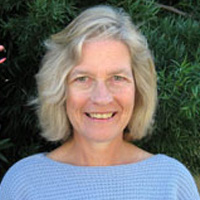When my daughter was four, she was disturbed to learn her best friend's father was a duck hunter. She quickly set her mind at ease by pronouncing, "But he only shoots bad ducks!"
It's one thing for a child to simplify a complex world by dividing it into good and bad. But what about when adults like NRA spokesman Wayne LaPierre respond to a major national issue by saying, "The only way to stop a bad guy with a gun is with a good guy with a gun."
Such bifurcation reassures in its promise of effective action, moral clarity and separation of "us" from "them." If only life were that clearcut. Although being armed can sometimes act as a deterrent, the data show that when guns are present, volatile situations are more likely to escalate than be defused.
A gun in the home intended for self-defense is far more likely to result in a suicide, criminal assault, homicide or accidental shooting. This has nothing to do with good guys versus bad guys, but the nature of firearms themselves. They are efficient, fast-acting and deadly. Easy access to guns can turn good people into bad actors. Just ask Michael Leach, a former police officer who accidentally killed his own son thinking he was an intruder. Or Pastor Rick Warren, whose son recently shot himself to death. Or parents of the five-year-old in Kentucky who just killed his little sister.
It's tempting to believe we can be transformed from victims into heroes by arming ourselves against dangerous others. It's equally tempting to believe that gun control is the answer to a complex problem. Like the story my young daughter told herself, such fictions bring only false comfort. Yet the bigger and more dangerous fantasy is that more guns will make us safer. Until we relinquish this illusion, along with easy access to deadly weapons, we will continue to bury our dead.
